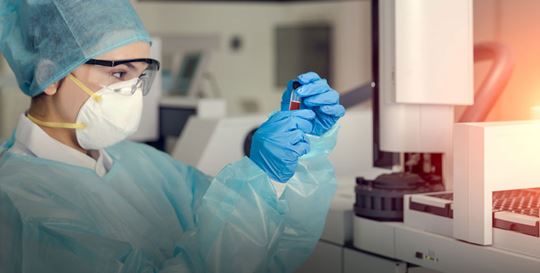Individual SARS-CoV-2 IgM Antibody Testing
In general virus infection behavior, an IgM assay will give information about current or recent infection; while IgG will, in addition, also give information about a more sustainable immune response.1 These two pieces of the infection story blur together when the patient takes a combined, or total IgM and IgG test. Because seroconversion is such a highly individualized journey, separate SARS- CoV-2 IgM and IgG tests can provide greater insight into where the patient is at in their infection timeline.Limitations of PCR Tests in the Diagnosis of COVID-19
The emergence and spread of COVID-19 is a major healthcare threat around the world. The current method of detection involves a polymerase chain reaction (PCR)-based diagnostic test. PCR tests use a patient sample from a nasopharyngeal or oropharyngeal swab and identify viral nucleic acids. However these tests are sometimes in short supply and results can take a week or longer. Even then, PCR tests are not fail-safe and false-negative results from PCR tests can occur— especially in asymptomatic patients.2 A recent Johns Hopkins study concluded, “If clinical suspicion is high, infection should not be ruled out on the basis of RT-PCR alone. 3”SARS-CoV-2 IgM Testing in Conjunction with PCR Testing to Help Improve Detection Rates
Long, Q. X., et al. report in their study, “Antibody responses to SARS-CoV-2 in patients with COVID-19” 7 out of 148 cases were identified with SARS-CoV-2 infection using an antibody test, though the patients had negative RT–PCR results and no symptoms.4Seroconversion of specific IgM and IgG antibodies in COVID-19 patients have been observed as early as one day after symptom onset. The seropositive rate of IgM typically increases gradually and notably 1-4 days into infection while IgG tends to increase sharply 12 days after onset. As IgM is a marker for earlier infection, using serological testing focused on SARS-CoV-2 IgM in conjunction with PCR tests may aid in identifying patients at risk for COVID-19.5,6
The More Information, the Better
Though new research is being conducted daily, many questions remain regarding the SARS-CoV-2 virus. In a time where the unknown is tremendous, empower your laboratory with the most data possible.Easy Integration into General Patient Workup
The human antibody response, which is crucial for clearance of initial virus infection, has been widely used to help diagnose viral infection. Compared to PCR assays that can be limited in quantity and can have slow turnaround time, the use of antibody assays is often faster, less expensive, easy to use, and accessible to staff without laboratory training.Discover more about the Access SARS-CoV-2 IgM assay.

 English
English





